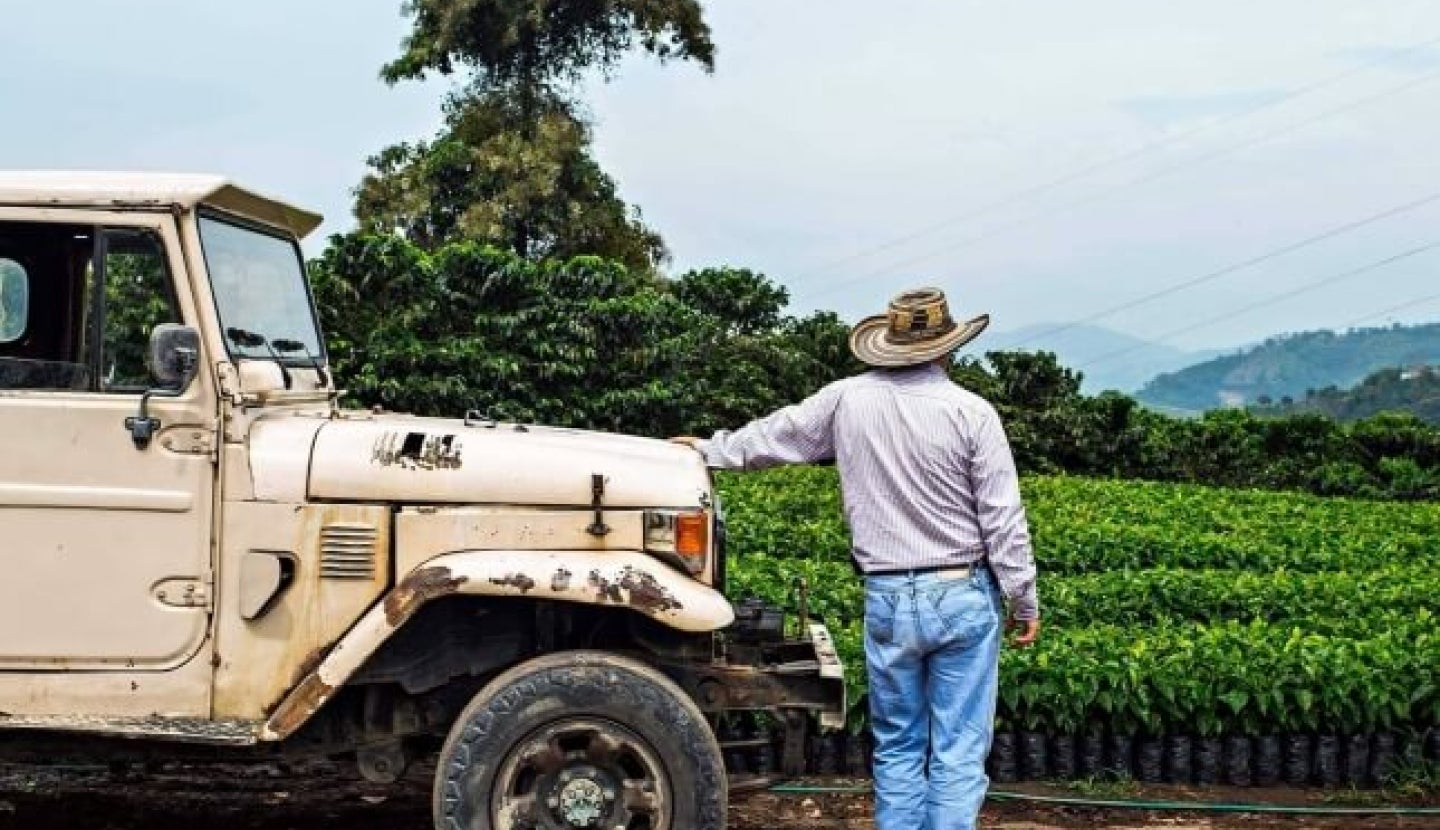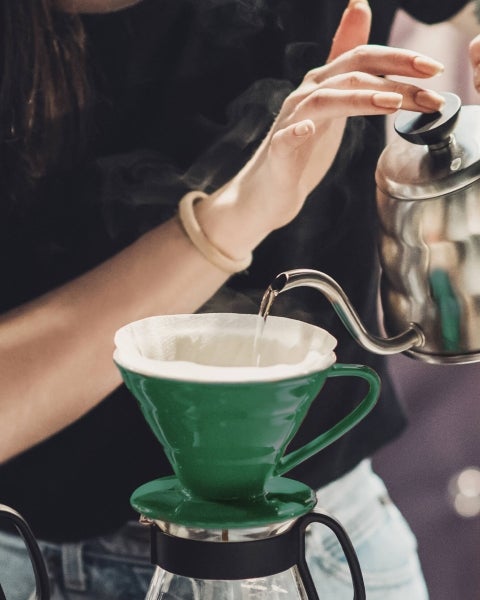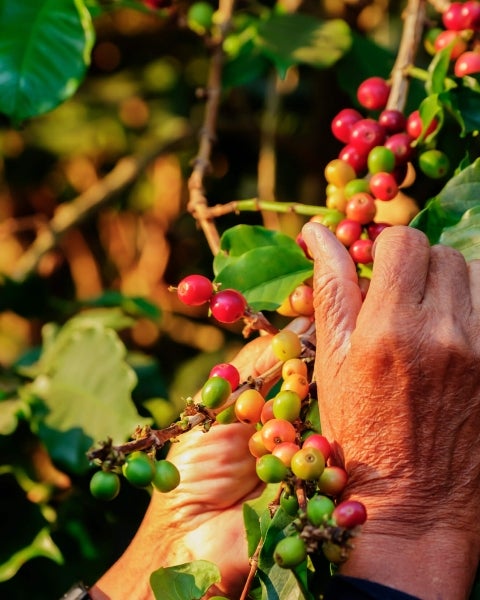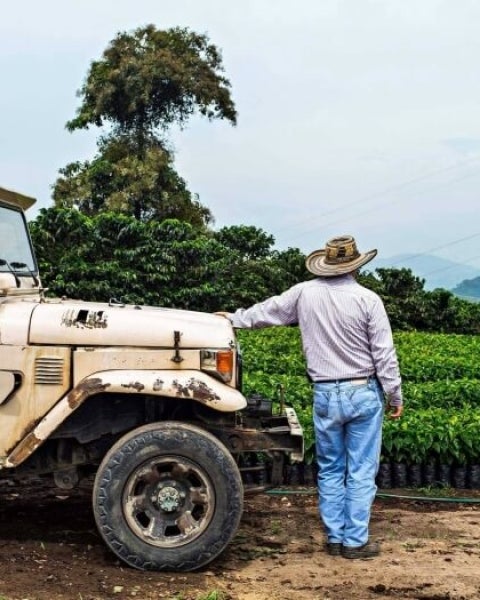Nestlé uses Starbucks trademarks under license. Pike Place is a registered trademark of The Pike Place Market PDA, used under license. Nespresso® and NESCAFÉ® Dolce Gusto® are registered trademarks of Société de Produits Nestlé S.A. All other trademarks are the property of their owners.
A VIRTUAL FIELD TRIP
Meet some of the agronomists and farmers working to help make coffee sustainable so you can enjoy coffee well into the future.
THE FUTURE OF THE COFFEE Your virtual field trip
Take a virtual field trip to Costa Rica to discover what argonomists and farmers are doing to address the effects of climate change, disease and diminishing natural resources on coffee farming.
They want to ensure your coffee cup stays full well into the future.
MORE THAN A BEVERAGE
Most coffee drinkers will tell you that coffee, especially in uncertain times, is more than a beverage. A cup of coffee can represent comfort, stability, a respite – a taste of normality, especially in a world that currently feels anything but. It represents much the same to the people who grow coffee.
“I have coffee for breakfast, at noon, at 2 p.m., and at night I have another cup. It’s like one of my daily meals,” said Ana Mendez, laughing. She and her husband farm coffee on several small plots in Costa Rica.
She said she often thinks of the people around the world drinking the coffee they grow. “I would want to tell them behind every cup of coffee there is sacrifice, there is work, there is hope, and there is love,” Mendez said. “There is so much love.”
QUICK FACT
Starbucks® reached the milestone of 99% ethically sourced coffee in 2015.
COFFEE IS AT A CROSSROADS
Yet coffee is at a bit of a crossroads. There are more coffee drinkers in the world than ever before, but each year, climate change, disease and diminishing natural resources can make the business of coffee farming more and more difficult.
In 2013, Starbucks® purchased a coffee farm in Costa Rica called Hacienda Alsacia to better understand these challenges, and to look for solutions. Since then, the farm has become a global hub of research and discovery – discoveries the team there hopes will help coffee farmers all over the planet and the ongoing challenges they face.
THE EFFECTS OF CLIMATE CHANGE
“The most complicated problems we have now are (coffee leaf) rust and climate change. It’s affected us a lot,” said Raul Blanco, a 22-year-old farmer in Costa Rica who sells coffee to Starbucks®.
A seventh-generation coffee farmer, Blanco said he was born into coffee, and remains dedicated to the future of the crop and his family’s land. He also loves imagining his family’s coffee making its way into the cups of coffee drinkers all over the world.
“I’ve never in my life thought about giving up coffee farming,” Blanco said. “Instead, I’ve always tried to look for ways to subsist as a coffee farmer, to improve it, day by day, to make (the farm) more profitable, more economical, and always taking care of the environment. Every coffee bean, every bushel of coffee, every truck full you take out every day is for someone somewhere in the world to enjoy it – for someone who is having a cup of coffee to delight in it.”
“Every coffee bean, every bushel of coffee, every truck full you take out every day is for someone somewhere in the world to enjoy it – for someone who is having a cup of coffee to delight in it.”
STEP TOWARDS SUSTAINABILITY
At Starbucks®, we purchase three percent of the world’s coffee, which is grown by more than 400,000 farmers much like Blanco.
Here are six things Starbucks® and coffee farmers around the world are doing to help ensure the future of coffee is sustainable and strong:
1. Sustainable sourcing and growing. Starbucks® coffee is 99 percent ethically sourced, and the company is on a mission to make coffee the world’s first sustainably sourced agricultural product. We purchase coffee verified by C.A.F.E. (Coffee and Farmer Equity) Practices. Developed with Conservation International, these guidelines provide comprehensive social, environmental, and economic criteria to help sustain and strengthen coffee communities.
2. Open-source agronomy. Starbucks® Farmer Support Centers at Hacienda Alsacia in Costa Rica and in eight other coffee-growing countries around the world bring agronomists, researchers and farmers together to share the latest research, information, advice and tools to grow coffee more sustainably and profitably.
3. Sharing climate-resilient coffee trees. We have donated more than 31 million climate resilient coffee trees like the hybrids created at Hacienda Alsacia. Farmers, whether they grow coffee for Starbucks® or not, can use these trees to replace those declining in productivity from age or disease. Starbucks® has a goal of providing 100 million trees to farmers by 2025.
4. Loans for farmers. The Starbucks® Global Farmer Fund has invested $49 million in coffee-producing countries around the world, funds farmers can use to renovate and strengthen their farms and farming practices to be even more productive and sustainable.
5. Support in difficult times. At Starbucks®, we will use our Farmer Support Centers to share information and supplies during the global COVID-19 response. In addition, the Starbucks® Foundation provided $1 million to Mercy Corps to help support education, communication, supplies and materials to assist in the prevention of COVID-19 in those coffee, tea and cocoa farming communities.
6. Investing in diverse and high-quality coffee. Starbucks® is committed to a diversified buying approach to ensure demand for high-quality coffee grown by women, smaller coffee growers and from a wide variety of places around the world.
Thank you for joining us on a virtual field trip to Costa Rica. Hopefully it’s given you a glimpse into the challenges agronomists and coffee farmers face.
On the brighter side, it’s also shone light on the steps Starbucks® and farmers around the world are taking to help ensure the future of coffee – for everyone.
Join us on a virtual field trip to Costa Rica, where you can meet some of the agronomists and farmers working hard to make sure your coffee cup stays full well into the future.



